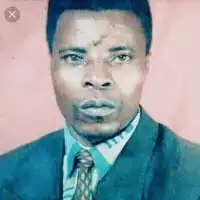Ssemakula Herman Basudde Biography
Herman Basudde (1958–1997) was a gifted Ugandan kadongo kamu musician hailing from Masaka District in southern Uganda. Born on December 5, 1958, to Eria Katende and Dimitiria Namyalo, his early life was marked by a deep passion for music that he couldn't pursue due to financial constraints and family circumstances.
Despite his limited formal education, Basudde displayed remarkable talent from a young age, especially in art and music. His journey into the world of music began with a gift from his father—an old guitar given to his father by a friend. He taught himself to play the guitar and started entertaining people in his village, earning both appreciation and some jealousy from his peers.
His musical journey took a significant turn when he performed at a local Catholic parish, where his talent was recognized. He sang a song entitled "Amajjiini Ngetala Luno" (The Rampant Demons) that captivated the audience and earned him a substantial reward, which led to the envy of his rivals.
However, his rise to fame wasn't without obstacles. During a period of political turmoil in southern Uganda, rival youth falsely accused him of possessing a gun, which resulted in him being tortured and nearly killed. His father advised him to leave the village for his safety.
In the mid-1980s, Basudde's career took off when he was mentored by Livingstone Kasozi, a seasoned musician who trained him in playing the guitar and performing on stage. Basudde's music career soared, and he embarked on successful tours throughout East Africa, including Kenya, Tanzania, and Rwanda, amassing significant wealth.
He is credited with revitalizing the kadongo kamu genre by blending Western and Kiganda music, drawing a new and diverse audience. His husky voice and emotionally charged songs explored themes of love affairs, unfaithful partners, and witchcraft. One of his popular songs, "Ekiwuka Ekyaga Muntamu," metaphorically addressed the AIDS epidemic in Uganda.
Tragically, Herman Basudde's life was cut short in an accident while traveling to visit his parents in Masaka. His funeral was a national event, with an outpouring of grief and USh 12 million raised for his burial expenses.
Basudde's influence extended beyond his music. He was regarded as a prophetic figure and a source of wisdom for upcoming artists, with even renowned musicians like Bobi Wine paying tribute to his enduring impact on Ugandan music.
Herman Basudde's legacy endures, as his songs continue to be celebrated, and his grave remains a place of pilgrimage for those seeking inspiration and guidance from this remarkable Ugandan musician

